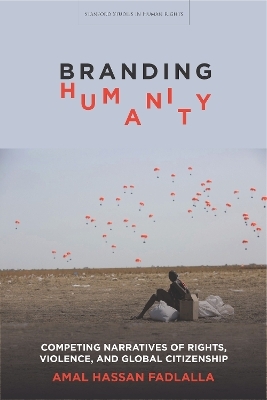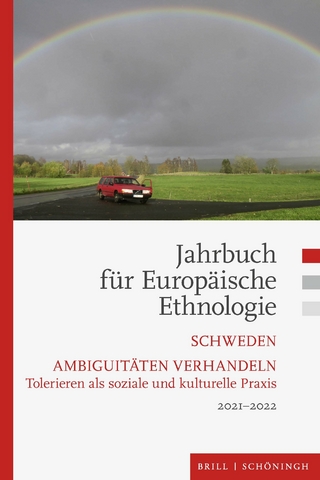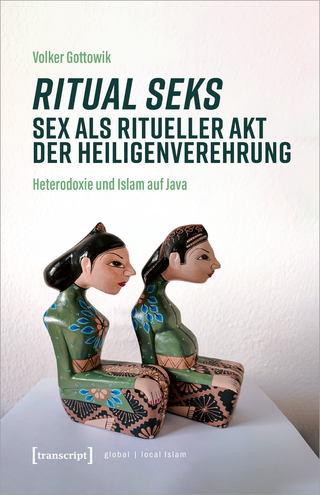
Branding Humanity
Stanford University Press (Verlag)
978-1-5036-0726-2 (ISBN)
Based on interviews with Sudanese social actors, activists, and their allies in the United States, the Sudan, and online, Branding Humanity traces the global story of violence and the remaking of Sudanese identities. Amal Hassan Fadlalla examines how activists contest, reshape, and reclaim the stories of violence emerging from the Sudan and their identities as migrants. Fadlalla charts the clash and friction of the master-narratives and counter-narratives circulated and mobilized by competing social and political actors negotiating social exclusion and inclusion through their own identity politics and predicament of exile. In exploring the varied and individual experiences of Sudanese activists and allies, Branding Humanity helps us see beyond the oft-monolithic international branding of conflict. Fadlalla asks readers to consider how national and transnational debates about violence circulate, shape, and re-territorialize ethnic identities, disrupt meanings of national belonging, and rearticulate notions of solidarity and global affiliations.
Amal Hassan Fadlalla is Associate Professor of Anthropology, Women's Studies, and Afroamerican and African Studies at the University of Michigan. She is the author of Embodying Honor: Fertility, Foreignness, and Regeneration in Eastern Sudan (2007).
Contents and AbstractsIntroduction: Violence Narratives and the Cultural Politics of Identity chapter abstractThe introduction lays out the theoretical, historical, ethnographic, and methodological framework of the book. It situates the production and circulation of violence narratives and the alliances, performances, and publics they engender in transnational theories that invoke the flexibility of citizenship, identities, and global flows of people, ideas, and capital. It further suggests a framework that incorporates competing models of transnationalities to reflect a hardening of social boundaries and a politics of exclusion and dispossession in the post–Cold War era.
1Performing Humanity: Suffering and the Making of Global Citizens chapter abstractChapter One focuses on the transnational alliances created during the conflict between Northern and Southern Sudan and shows how these alliances were performed in different sites and transnational forums to imagine a southern national identity tied to religious suffering, compassion, and a neoliberal understanding of ethno-gendered humanity. Such alliances countered the rising tide of transnational Islamic solidarities and their liberation rhetoric at the end of the Cold War. The early wave of alliances in the 1990s, and the later solidarities that followed before the country's separation on July 9, 2011, manifests the role of faith-based groups in redefining Sudan's ethnic identities and debating the country's place in the emerging moral orders of Pan-Islamism and pan-humanitarianism. These different processes and mobilizations provided the fertile ground and marked the "right time" for the separation of the country into two nations.
2Humanitarian Publics: Celebrities, Solidarities, and Students chapter abstractChapter Two traces the ways in which human rights and humanitarian cultural politics have proliferated in the era of celebrity activism and transnational alliances for the Sudan. It considers the case of the Darfur conflict as a "second wave" in the development of these alliances, one that both diverged from and intersected with activism for South Sudan. This second wave of alliances also brings to light the role of celebrity activism in educating a new generation of American student activists, allies, and role models. The chapter provides many counter-narratives to contrast with the predominant narrative of celebrity humanitarianism and shows how celebrity mobilization informed activists' aspirations and constrained their spaces for struggles in various ways. It examines celebrity activism as another site of transnational alliances and protests, an extension of a humanitarian public, and a creative way of performing humanity, affective violence, and the right to development.
3Diaspora as Counter-Response: Citizenship Rights and the Suffering of Ghurba chapter abstractChapter Three presents an alternative humanist narrative grounded in the idea of "diaspora publics" and the reassertion of national and transnational citizenship rights in exile. It problematizes the construction of a rigid "Northern Sudanese" identity by considering the voices of seculars, Muslims, and non-Muslims who dream of national unity, diversity, and inclusion, and whose national and transnational aspirations are constrained by the hegemonic narratives of pan-humanitarianism and Pan-Islamism. The work of these overshadowed communities, alliances, and social networks has helped to offset the impact of exclusion in the aftermath of 9/11, the escalation of the Sudanese conflicts, and the country's subsequent division. By presenting these counter-narratives and different ways of organizing, the chapter emphasizes that the humanitarian model of global citizenship leaves no room for the variety of experiences that depict national and transnational visions of rights, humanity, and belonging.
4Contested Borders of Inhumanity: Refuge and the Production and Circulation of Violence Narratives chapter abstractChapter Four introduces the concept of "audiopolitics" to explain how the circulation and production of violence narratives serve as an effective medium through which the transnational humanitarian audience is mobilized to listen, respond, and act. The chapter shows how this form of narration has been facilitated by the emergence of the Sudanese cyberpublic media that connect Sudanese transnational actors, and their allies, in various diaspora locales. It positions this circulation of stories of violence within the expanding moral politics of rights and humanitarianism and the counter-responses they engender, such as Sudanese nafir practices of solidarity and social care. The chapter thereby proposes a different reading of violence narratives that situates the root causes of violence in political history and in competing structures of feelings and moral claims of national and transnational affinities.
5Toward an Inclusive Humanist Future: Borders, Bodies, and Funerals chapter abstractThe book's conclusion describes the historical moments after the South Sudan referendum and division. It also explains why narratives of ethno-gendered violence—similar to those used to describe the conflicts in the Sudan before the division—have yet to emerge. In the clash of visions among Islamists, secularists, and human rights and humanitarian activists over the identity of the Sudan, the meanings of place and the parameters of belonging have all been challenged. To this end, the conclusion emphasizes the importance of a transnational/trans-relational approach that captures the wide spectrum of ethno-gendered and embodied discourses and practices, their visibilities and invisibilities, across time and space.
| Erscheinungsdatum | 02.10.2018 |
|---|---|
| Reihe/Serie | Stanford Studies in Human Rights |
| Zusatzinfo | 15 halftones |
| Verlagsort | Palo Alto |
| Sprache | englisch |
| Maße | 152 x 229 mm |
| Themenwelt | Sozialwissenschaften ► Ethnologie ► Völkerkunde (Naturvölker) |
| Sozialwissenschaften ► Ethnologie ► Volkskunde | |
| Sozialwissenschaften ► Soziologie | |
| ISBN-10 | 1-5036-0726-7 / 1503607267 |
| ISBN-13 | 978-1-5036-0726-2 / 9781503607262 |
| Zustand | Neuware |
| Haben Sie eine Frage zum Produkt? |
aus dem Bereich


